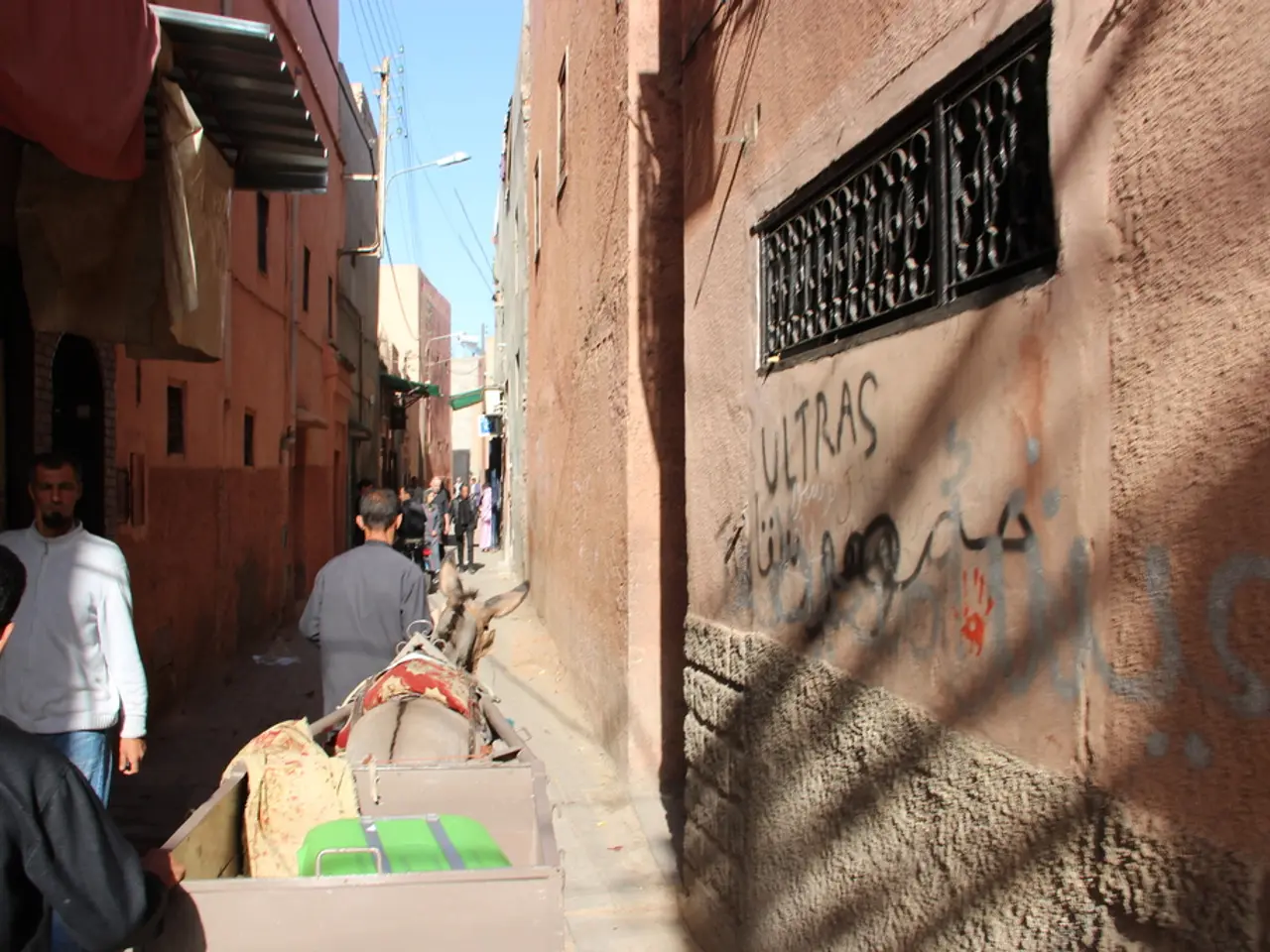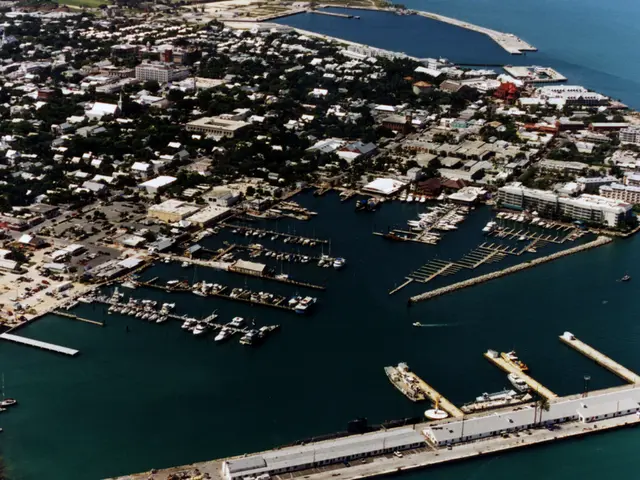Military operation in Gaza City by Israel sparks broad criticism globally
In a significant development, the Israeli Security Cabinet has approved Prime Minister Benjamin Netanyahu's plan to expand military operations and seize control of Gaza City [1]. This decision, however, has sparked a wave of criticism and concern from key international actors and organisations.
The United Nations has warned that Israel's plan to gain total military control of Gaza City, home to about one million Palestinians, will lead to "another horrific chapter" of death, displacement, and destruction, potentially destabilizing the entire region [2]. Amnesty International has described Israel's decision as an "outrageous decision" that will exacerbate an already dire humanitarian crisis marked by starvation, displacement, and destruction of Gaza's healthcare system [3].
European Council President Antonio Costa has stated that the move "must have consequences" for Israel's ties with the EU [6]. The UK, under Prime Minister Keir Starmer, has urged Israel to reverse its decision on expanding military operations in Gaza City [7]. France strongly condemns the plan to occupy Gaza City and forcibly displace its population, stating such actions would violate international law and undermine prospects for peace and regional stability [4].
Several Arab and Muslim-majority states, including Saudi Arabia, Egypt, and Pakistan, have also condemned the plan to expand military operations in Gaza City [8]. The Hostage Relatives Forum considers the decision a "death sentence" and an "official declaration of abandonment" of captives, with an estimated 50 hostages - around 20 believed alive - still in Gaza [3].
Germany has announced it will suspend arms exports to Israel that could be used in Gaza "until further notice" [2]. The UN Secretary-General António Guterres has condemned the plan as a "dangerous escalation" that risks worsening Gaza's humanitarian catastrophe [9].
Prominent Israelis, including artists and retired generals, are speaking out against prolonging the war [10]. Egypt has reiterated its refusal to accept displaced Palestinians and urged a push for reconstruction [11]. The move to expand military operations in Gaza City threatens to deepen Israel's diplomatic isolation [1].
A joint statement representing the United Kingdom, Denmark, France, Greece, and Slovenia condemned Israel's decision to expand military operations, warning it risks violations of international humanitarian law and increased civilian casualties, including of hostages [5]. European Commission chief Ursula von der Leyen has urged the plan to be "reconsidered" and reiterated calls for a cease-fire and humanitarian access [5].
The current international response to Israel's plan to expand military operations and seize control of Gaza City is overwhelmingly critical and deeply concerned. Key international actors and organizations have emphasized that it risks catastrophic humanitarian consequences, violations of international law, and regional destabilization. Meanwhile, Israel maintains that expanded operations are necessary to "demilitarize" Gaza, remove Hamas from power, and achieve overriding security control, despite criticism from hostage families and concerns over potential civilian harm [1]. The UN Security Council will hold an unusual Saturday meeting to discuss the development [9].
The United Nations Security Council has scheduled an unusual Saturday meeting to discuss Israel's controversial plan to expand military operations and seize control of Gaza City, sparking concerns about potential violations of international law and catastrophic humanitarian consequences [9]. In response to this decision, Amnesty International and the United Nations have issued strong warnings, describing Israel's plan as exacerbating an already dire humanitarian crisis and potentially leading to another escalation of war and conflicts in the region [2][3].








